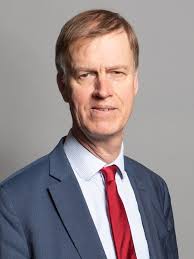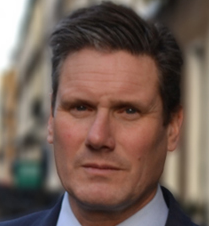Stephen Timms – 1999 Speech at the Asian Business Development Forum Conference
The speech made by Stephen Timms, the then Financial Secretary to the Treasury, in Leeds on 29 October 1999.
I am grateful to you for your kindness in both inviting me and welcoming me here tonight. Tonight I want to say a few words about our aspirations for the British economy in the next century.
Modern and decent
- But let me first put this in the context of the wider aims of our Government over the last two years. What we have embarked on is a twenty year programme to build a new Britain which will be modern and decent. Both of those things at the same time.
- Modern Britain will have an economy where the vital new stability has been locked in for good, beyond our past decades long record of boom and bust. We want thriving knowledge-based firms exploiting the know how, creativity and expertise of British people. We want to create the best environment in the world for electronic commerce. Higher levels of investment, in information technology, in infrastructure, in skills. Higher levels of productivity to catch up after decades with our competitors. We’ll have higher standards at school, have harnessed the potential of further and higher education, and provide high quality opportunities for our young people. As individuals and collectively we shall have confidence in the future.
- Decent Britain will be an inclusive society where everyone has the chance to play their full part. Over the twenty year period, child poverty will be eradicated. There will be help for those trapped on benefits or in poor housing or without a job, and those unable to work through disability or through caring for somebody else. We’ll have a health service which people will have confidence in. There will be decent standards for those at work. We’ll confront crime, anti-social behaviour and drug taking which cast a shadow over too many young lives. We want to entrench decent values – society pulling together, and with rights matched by responsibilities.
- So modern and decent – that’s where we want to be in the years ahead.
The Business Community
- We want a thriving business community in Britain. Our enemy today is not competition – it is cartels. It is not profits – it is privilege. It is not markets – it is monopoly. We want to see more enterprise. More competition and more innovation too. We know – and you know too – that companies, indeed countries which fail to adapt, reform and lead get left behind.
- The businesses represented in this room have learnt that lesson.
- Businesses from the Asian community contribute £8 billion each and every year to the British economy. More importantly in my view, you epitomise the spirit of enterprise and the determination to succeed that is so vital if the British economy is to lead the way in the next century.
- I’ve seen this from close quarters. Green Street in East London marks the boundary of my constituency. 35 years ago when Ahmed Din, the first Asian trader opened his shop there, it was a drab and declining inner city shopping street. Today, I claim it is the most successful Asian shopping street in the country. It is a vibrant and exciting place, attracting shoppers from all over the UK and continental Europe, and it has been the determination, vision and commitment of Asian entrepreneurs in East London which has brought the transformation about.
- We – Government and businesses together – face a profound challenge in this country of ours. How to create a high investment, high productivity and high employment economy.
Stability
- We start with stability. It is the precondition of success in the modern global economy. That’s why our first priority when we came to office was moving from the violent cycles of stop go that we had seen too often in the past, to an economy capable of sustained and steady growth.
- Now – 2 years later – with the Bank of England independent and the lowest interest rates and mortgages in decades, it is now clear that we have steered a course for stability in what have been troubled times for the world economy. The British economy is growing. Inflation is low and set to remain low. The public finances are under control. Employment is up by over 600,000 since the election. We have a record number of people in work and a record number of job vacancies too.
- So what we can rightly say now is that for the first time in a generation we have the prospect of sustained economic stability in Britain. But that is not enough. Our task now is to use this platform of stability to do what no government has tried to do before – to work with business in taking an unashamedly long term view about modernising the British economy.
Modernisation
- We will do so in five ways.
- First, modernisation requires nothing less than a skills revolution. In today’s world it is no longer access to financial resources – capital – or to physical resources – iron and steel – that make or break a country.
- Now – as never before – our key asset is our human resources – it is labour that counts. Now on the verge of a new century, the challenge for government and business working together is to equip all of our people to succeed in the new knowledge economy.
- Hence our emphasis on education. The investment we are making not just in our schools, but in our colleges and universities too. In this new information age education can no longer end at the school gate. Lifelong learning is the only way in the modern world to keep Britain one step ahead of the rest.
- Second, modernisation means encouraging innovation and invention. That’s why last year we put an extra £1 billion into university science. And it’s why next year we’ll introduce a new tax cut for R&D that will become one of the best incentives for innovation anywhere in the industrialised world.
- It will help British companies to turn new British ideas into new British innovations, new British innovations into new British products and new British products into new British jobs.
- Third, we need more and better investment. For decades the UK has invested less than our competitors.
- We know in particular that businesses – if they are to grow- need help with investment. That is why the Treasury with Don Cruickshank, former head of Oftel, is working with the banks to look at how they might more effectively provide support, especially to smaller firms.
- Fourth, modernisation means a new emphasis on enterprise. Companies create wealth not governments. But what governments do or do not do can help or hinder that process. This Government wants to see a new culture of enterprise in Britain – where we have more people starting their own business, having a go, taking risks.
- Here the Asian community provides an example to the rest of Britain. The Asian community has placed real value and respect on entrepreneurship which has helped Asians to become a driving force particularly in small business development in Britain. Ethnic minorities, of which the Asian community forms a large part, account for twice as many business start-ups as their share of the population. And, as some of my fellow guests here tonight will testify, a number of these small businesses have been built up into some of largest companies in Britain today.
- We know that in the future jobs growth will come from a large number of small firms rather than a small number of large firms. That is why we have cut the rate of corporation tax to the lowest rate in our history, in Europe and in any major industrialised country so that those who create wealth keep more of it to reinvest in growth and jobs.
- That brings me to the fifth and final way that we are seeking to tackle the modernisation challenge our country faces: through a modern employment policy. One that matches rights with responsibilities. One that provides new opportunities for work. And one that through a reformed tax and benefit system makes work pay.
- When we came into office, four and a half million adults lived in households where nobody worked, double the level of 20 years ago.
- Nearly one in five children were growing up in households where no-one is working, twice the rate of France and four times the rate of Germany.
- And the reason that this issue of unemployment poses a massive challenge is that it is now the primary cause of poverty.
- 20 years ago, pensioners made up the largest section of those in poverty, today it is those living in workless, working age households.
- Simply compensating people for their poverty through benefits is not enough. The task must be to deal with the causes of poverty. And the best form of welfare is work.
- Our strategy has been to tackle the barriers that people face to getting into work – the lack of employment, the unemployment and poverty traps, the absence of necessary skills, even the absence of child care.
- Under the old system the tax system set a personal allowance that failed to ensure that work paid, and also made thousands pay tax even as they claimed benefits.
- In the new tax system working families will be guaranteed a minimum income, so that in future no-one in work should have to go to the benefits office to receive a living wage.
- These then are our radical approaches to modernising our economy. Our objectives are two-fold – to build an enterprise economy and a fair society. The two go together. All too often in the past they were viewed as antagonistic even irreconcilable objectives. That is not this Government’s view. Rather we believe that the one relies on the other. An enterprise economy is the route to jobs and prosperity. And a fair society where there are opportunities for all will help make our economy more competitive and productive. That means building an inclusive society where not only are there opportunities for all – regardless of class, of gender, or of race – but where success depends on merit and merit alone. Our ambition is to widen the winners circle in Britain. That is what modernisation means for our country.
- We want to see a Britain where there is economic stability; a Britain which is business-friendly; a Britain where public and private sectors, instead of working against one another, work with each other to create greater enterprise and greater fairness.
- The Government will play its part in modernising Britain so that we can be a leader in the knowledge economy.
- But so too must British business. Our challenge to business is this. Work with us. Use not just the skills of a few in your workforce, but invest in training and new technology for the many. Overcome with the Trade Unions the culture of us and them that can have no place in a modern knowledge-based economy that relies on the skills of the many not the few.
- The challenges are enormous but if we work together the prize is an enormous one too – a modern economy fit for the future, ready to offer employment opportunity and greater prosperity for all our people in the years ahead. It is a challenge that together we can meet.


